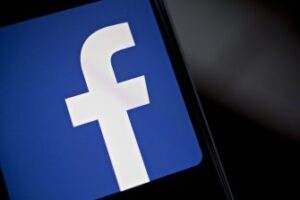San Francisco: Facebook has banned ads on its flagship website and Instagram photo and video sharing service that claim widespread voting fraud, suggest US election results would be invalid, or which attack any method of voting.
The company announced the new rules in a blog post, adding to earlier restrictions on premature claims of election victory.


The move came a day after US President Donald Trump used the first televised debate with Democratic challenger Joe Biden to amplify his baseless claims that the November 3 presidential election will be “rigged”.
Trump has been especially critical of mail-in ballots, and he cited a number of small unrelated incidents to argue that fraud was already happening at scale.
Facebook has been under fire for refusing to fact-check political ads more broadly and for rampant organic misinformation.
Citing hate speech rules, it also moved on Wednesday to remove Trump campaign ads suggesting that immigrants could be a significant source of coronavirus infections.
Facebook said the new election ad prohibition would include those that “portray voting or census participation as useless/meaningless” or that “delegitimise any lawful method or process of voting or voting tabulation … as illegal, inherently fraudulent or corrupt.”
Facebook also cited ads that call an election fraudulent or corrupt because the result was unclear on election night or because ballots received afterward were still being counted.
The company added that as of September 29, it has banned ads that “praise, support or represent militarised social movements and QAnon” from its platform.
QAnon followers espouse an intertwined series of beliefs, based on anonymous web postings from “Q,” who claims to have insider knowledge of the Trump administration.
Facebook has also identified an “uptick” in content related to the far-right Proud Boys, after President Donald Trump declined to condemn the group during Tuesday night’s presidential debate, a company executive said on Twitter.
The content included memes featuring Trump’s instructions to the group to “stand back and stand by,” said Brian Fishman, who directs Facebook’s team handling counterterrorism and dangerous organizations.
During the debate, Trump deflected an opportunity to denounce “white supremacists and militia groups” amid violence that has marred some protests against racism and police brutality in multiple US cities.
“Proud Boys, stand back and stand by,” Trump said, before immediately pivoting: “But I’ll tell you what, somebody’s got to do something about antifa,” he said, referencing the largely unstructured, anti-fascist movement that broadly aims to confront those it views as authoritarian or racist.
Extremism experts warned the president’s response could embolden Proud Boys supporters, who promptly circulated memes quoting the president’s words on various social networks.
Reuters
